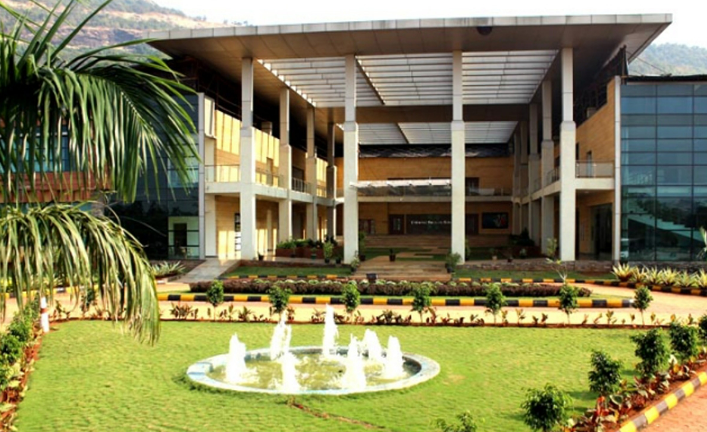Restoring Recognition of Private Medical Colleges in Kerala
The Vice-Chancellor of Kerala University of Health Sciences (KUHS) has taken strong action in response to the National Medical Commission’s (NMC) recent refusal of recognition for MBBS degree courses. In a proactive effort, the Vice-Chancellor has requested a meeting with the principals of three private medical colleges impacted by the NMC’s decision. This conference, set for Tuesday, intends to deliberate and examine options for restoring these colleges’ recognition and ensuring that MBBS admissions for this year are unaffected.
Intervention of the Governor
The Governor of Kerala, Arif Mohammed Khan, who also serves as Chancellor of the University, inspired this conference. After hearing an appeal from one of the private medical colleges that had lost recognition, the Governor directed the Vice-Chancellor to take action. Recognising the necessity of correcting the inadequacies and appealing the NMC’s decision, the Vice-Chancellor has accepted the Governor’s direction and is attempting to lead the affected colleges through the process of regaining recognition.
Maintaining Medical Education Standards in Medical Colleges of Kerala
The NMC’s decision to withhold certification to three private medical colleges of Kerala was based on a thorough review that revealed various flaws. These inadequacies included a paucity of associate and assistant professors, an insufficient number of tutors and demonstrators, and a lack of senior residents. In addition, flaws such as the adoption of an Aadhaar-enabled biometric attendance system (AEBAS), subpar ways of conducting annual checkups, and non-functioning cameras in the hospital area were identified.
Investigating Restoration Routes in Medical Colleges of Kerala
The Vice-Chancellor’s meeting will debate and examine possibilities for appealing the NMC’s decision and regaining recognition for the impacted colleges. Each college will be able to address the specific inadequacies identified by the NMC and propose corrective steps to address them. The Vice-Chancellor hopes to help the colleges towards a successful appeal procedure that assures compliance with the NMC’s standards by participating in constructive discourse.
University Assistance and Direct Communication
Aside from the conference, the University will actively support the impacted colleges by interacting directly with the Apex medical commission. On behalf of the colleges, the University will issue a formal letter pressing the NMC to expedite the hearing process. This proactive measure aims to emphasize the importance of the situation and ensure that the restoration of recognition is completed as soon as possible. By immediately interacting with the NMC, the University hopes to protect students’ interests and avoid any negative influence on this year’s MBBS admissions.
Impact on Medical School Seats
The NMC’s refusal to recognise three private medical institutions in Kerala could result in the loss of around 450 MBBS seats in the state. Among the affected institutions are Thrissur’s Jubilee Mission Medical College & Research Institute, Thiruvananthapuram’s Dr. Somervell Memorial CSI Hospital & Medical College, and Thiruvananthapuram’s Sree Gokulam Medical College & Research Foundation. Because of the loss of recognition, Jubilee Mission Medical College has lost 100 medical seats, while each of the other two medical colleges has lost 150 seats.
Seats are being reduced even further.
Separately, the Apex medical education governing body’s UG Board has cut the number of medical seats at Sree Uthradom Thirunal Academy of Medical Sciences (SUTAMS) in Thiruvananthapuram. The institute, located in Kerala’s capital city, has lost 50 of its 100 MBBS seats due to noncompliance with the NMC’s stipulated requirements.
Providing High-Quality Medical Education
The NMC’s actions, including the denial of recognition to certain medical colleges, highlight the critical need of maintaining the highest standards of medical education. The NMC’s inspections are critical for assessing the quality of medical colleges and ensuring they provide an excellent learning environment. To maintain the intended standards, universities must swiftly correct any detected inadequacies. Colleges may file an appeal against the NMC’s decision when they have effectively remedied the identified flaws.
An Increased Regulatory Effort
The denial of recognition to medical institutions in Kerala is part of the NMC’s larger endeavor to ensure conformity with prescribed standards throughout the country. The NMC has already de-recognized roughly 40 medical colleges in the last two months due to non-compliance with the mandated norms. This focus on noncompliance has been accompanied by increased monitoring of approximately 100 other medical institutes, which may face similar penalties if they fail to fulfill the NMC’s criteria.
The Next Steps
While the loss of recognition is obviously a huge blow for the impacted medical institutions, it is crucial to remember that the decision can be challenged. Dr. Rajeev Sood, a member of the NMC, has told medical schools that de-recognition is not rare and that they can appeal the decision. The affected medical colleges in Kerala have a good foundation to navigate the appeals process and work towards recovering their recognition thanks to the Vice-Chancellor’s proactive stance and the University’s support.































